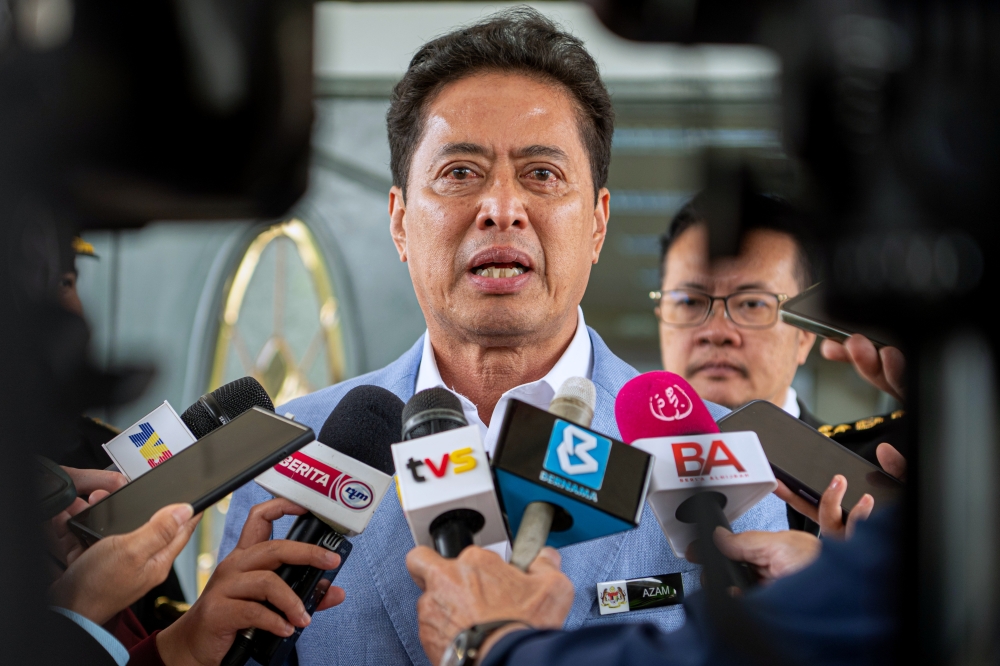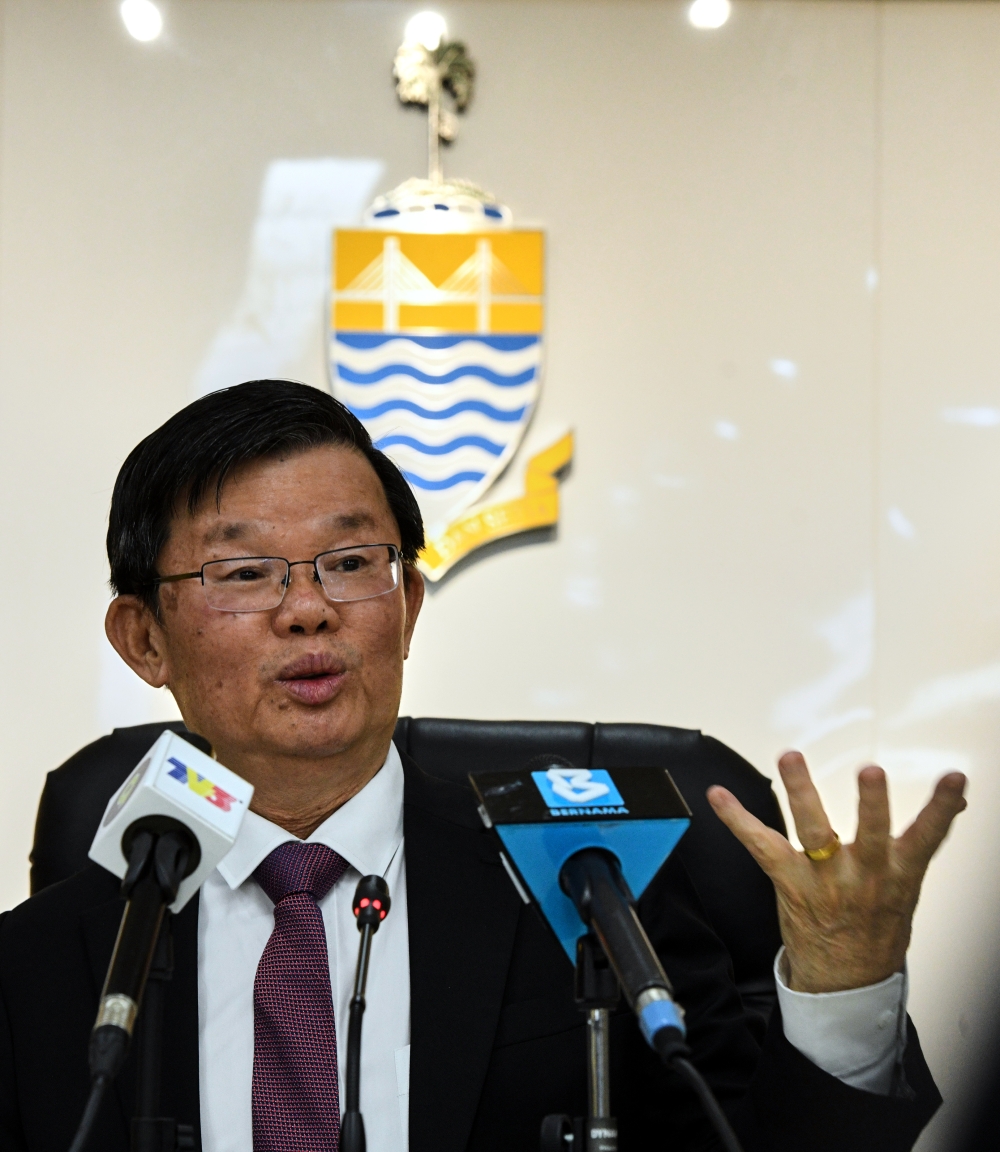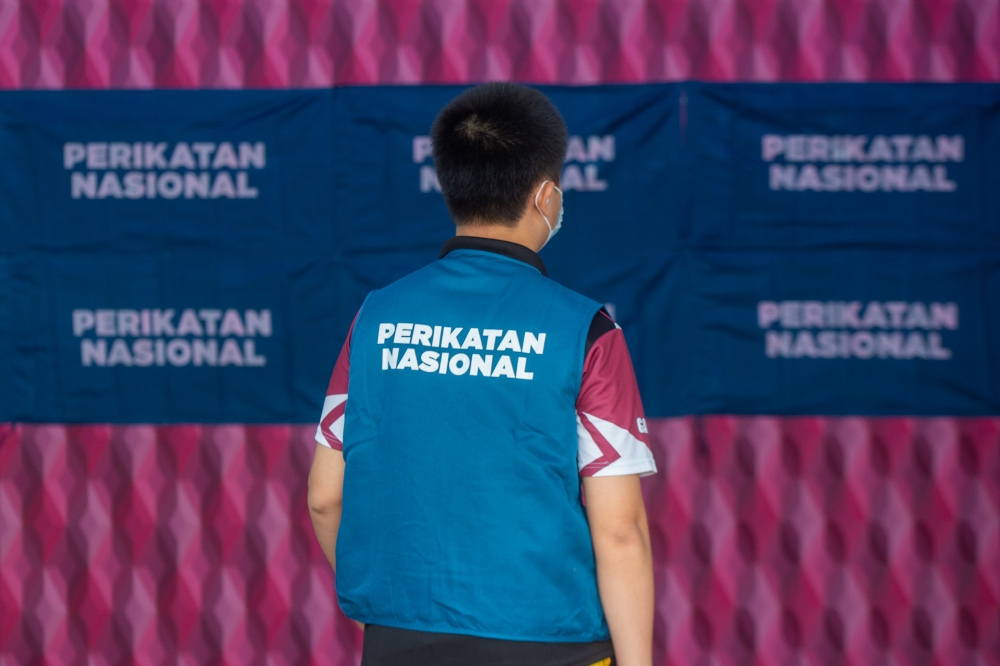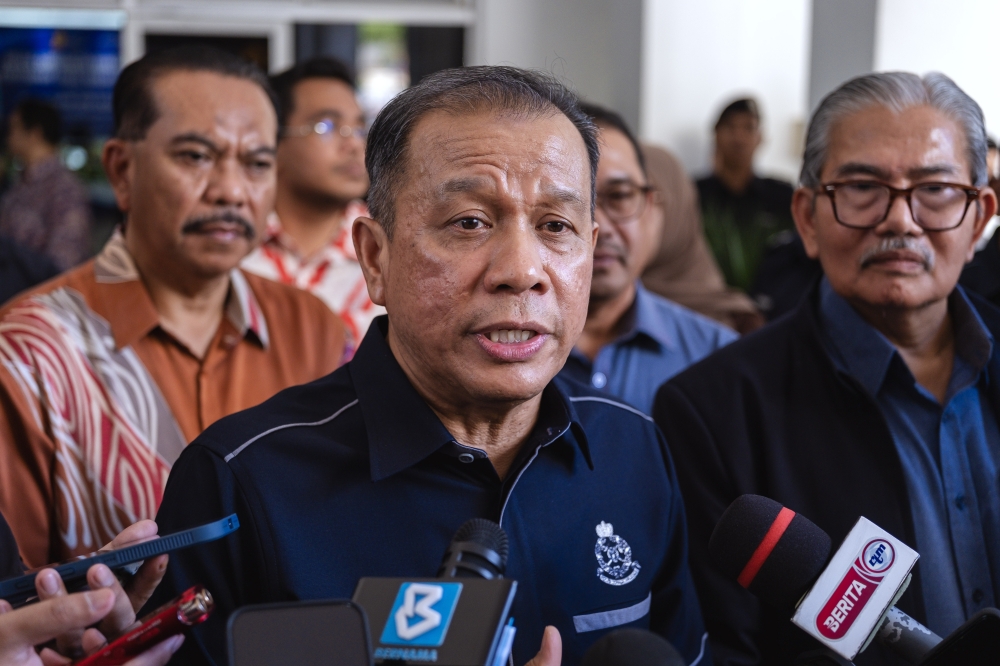APRIL 12 — The political thriller Daulat captured public attention after a teaser trailer was released on February 24, just after the country experienced a tumultuous weekend that saw Tun Dr Mahathir Mohamad resign as prime minister.
In the trailer, Vanidah Imran’s character Suri is explaining her machinations to party president Hassan Banna (Tony Eusoff); both gorgeous-looking politicians moving their exquisite crystal chess pieces around the board, red sirap in wine glasses.

Daulat is fictional and these details make it obvious that this is nowhere close to our painful reality.
First conceived in April 2019, the maiden film by Lacuna Pictures and Imran Sheik (the man behind halal speakeasy Jibril in SS15, Subang Jaya) took only 14 days to shoot with a meagre budget of RM500,000.
However, it did not get the green light from the Film Censorship Board but it was released on streaming platform iflix earlier this week for free amid the Covid-19 partial lockdown.
“Our first step to take back the throne, we must strengthen the base,” was Suri’s first line in the teaser, and this premise set the tone for the rest of the film as her Malay nationalist party MUNA moved to regain power in the next general election by any means possible.
MUNA is an obvious allusion to its real-life counterpart, and the rest of Daulat is just as subtle. Its characters are prone to bombastic and over-the-top dialogue. Its portrayal of Islamist politics is shallow, and bound to rankle the conservatives.
I was particularly irked by its portrayal of women. In Daulat’s world, women may have managed to break that political glass ceiling, but are portrayed as cunning and mere fetishised sexual manipulators.
But don’t let that stop you from catching this film. Not only is this a welcome addition to the country’s vibrant film scene, but it may yet pave the way for more political thrillers to sate the Malaysian malcontent with the government, and the release of materials deemed too risqué for the nanny state on alternative platforms.
In this regard, Daulat has more than fulfilled its mandate.
What caught my attention most, however, was the portrayal of the media industry with the storylines of career ladder-climbing reporter Jasmin (Jasmine Suraya) and media company co-owner Nadiya (Cristina Suzanne).
Major spoilers after this as we look at how accurate (or not) Daulat’s portrayal of the media was.
1. Political ownership of media houses
Nadiya got into a financial trap arguably due to the shift of the media landscape, similar to the scramble within the local media industry that was largely unprepared for a Pakatan Harapan win in 2018.
In Daulat, Nadiya’s Media Raya is in intense competition with rival MCC, which it accuses of being “cronies” with the new Wawasan ruling coalition.
It is afraid that its link to the previous government would cause it problems.
But in truth, Media Raya’s link to politics goes much deeper than that.
Its co-owner and de facto chief Idrus (Rashidi Ishak) is literally in bed with the deputy president of perhaps the country’s biggest political party. And yet (or perhaps because of that), Media Raya has had no problems keeping its credibility.
Just like BN with Media Prima and MCA with The Star, Umno used to control Utusan Melayu (Malaysia) Bhd which published Utusan Malaysia and Kosmo!, but a takeover move by Syed Mokhtar al-Bukhary resulted in the two dailies closing down to the detriment of its staff.
Utusan was supposed to relaunch in May, presumably as a Pakatan-friendly paper. That plan seems to have been scuttled as Perikatan Nasional took over Putrajaya earlier this year.
2. Pivot to video
Idrus’ idea to rescue Media Raya is a RM20 million news video streaming portal, which the company not only has no experience with, but would put it in direct competition against MCC which has done this earlier.
This is akin to a rush by local media companies prior to GE14 to come out with video content, believing that readers prefer to get their information visually rather than through reading.
In return, some media houses hired videographers, but some just directed their reporters to record on top of their assignments. Some were given equipment, some had to use their own phones. With no training in mobile or video journalism, most failed miserably.
This move, which mirrors the “pivot to video” phase that started in the US in 2015, was driven by the opportunity to monetise videos and viral content on social media, particularly Facebook.
In the US, this business strategy has become synonymous with layoffs, while Facebook even admitted to inflating its metrics.
3. Planting the front page
The most amusing depiction of media in Daulat is Jasmin, who slept her way to becoming the general manager of Media Raya, essentially making a jump to the top of the management or business side from editorial soon after joining the company.
This is considering how incompetent she was as a reporter — not landing any major front page stories despite already writing for six months.
The only time she (her story) got onto the front page is because of the sex and to plant a story for MUNA, and yet she celebrated it with a genuinely huge grin on her face.
Talk about a “positive” role model for young journalists. This “unethical female journalist” trope has been so common in Hollywood, resulting in caustic backlash from aspiring female journalists.
And despite now being a general manager, Jasmin is still reporting? You go, girl.
To this I don’t have much to add, but it really does not take sex for a politician to be able to “plant” angles and sources.
I asked director Imran if this portrayal of the media was based on any specific event in Malaysian politics. He said it was merely based on his brief research of how media and politics are inevitably intertwined.
“One simple example is most dictators control the media,” he told Malay Mail over a chat.
“Another reason is I wish to convey to the mass audience to be careful and critical of anything they read in the news. Not to accept 100 per cent nor reject all of it, but to evaluate it first.”
As Putrajaya ramps up its renewed crackdown on “fake news”, Daulat serves as a nice reminder of that. Hopefully, it will nudge the public into better media literacy.
*This is the personal opinion of the columnist.





















